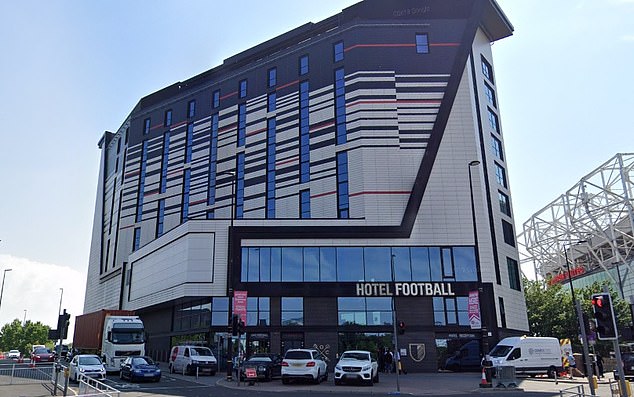Insurance firms MUST pay out to firms that lost cash to Covid
Tens of thousands of small businesses will now receive insurance payouts worth as much as £1.2billion to cover losses in the first national lockdown following a landmark Supreme Court ruling today.
Cafes, pubs, beauty parlours, holiday firms and wedding planners are among the 370,000 firms that had policies which should now pay out.
Former footballer Gary Neville, who owns two luxury hotels in Manchester with his former teammate, Ryan Giggs, is one of the business owners in line to receive thousands.
The news is a boon to small firms that have been crippled by the impact of the harsh restrictions, but it is unclear if any of the money will go to customers of travel or events companies who have had bookings cancelled.
The case centered around whether firms who held business interruption policies were entitled to compensation after having to close during the first national lockdown.
These policies usually only cover disruption to commercial activity caused by property damage, but they can also included losses from ‘infectious’ or notifiable diseases.
Six insurers who had sold business interruption insurance products – Arch, Argenta, Hiscox, MS Amlin, QBE and RSA – unsuccessfully argued that their policies did not cover Covid because it was a global pandemic rather than a local event.
The majority of businesses who will now receive payouts will be customers of these six insurers, but firms who hold similar policies with other insurance companies now stand a far greater chance of success.
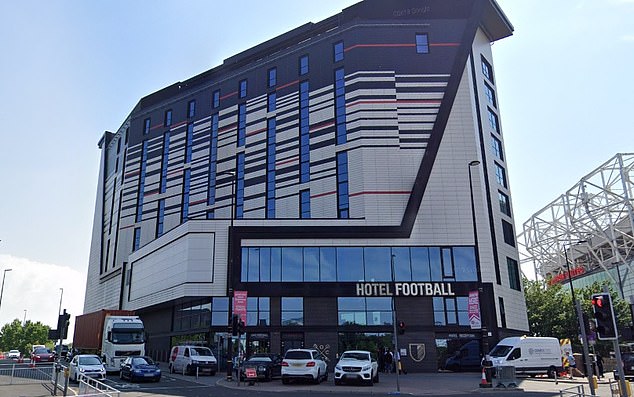
Ex-footballer Gary Neville, who owns two hotels in Manchester with his former teammate Ryan Giggs, was one of those previously denied compensation. Pictured is his Hotel Football by Old Trafford
![Neville tweeted in November: 'We have paid BI [business interruption] insurance for years and they won't pay out! Due to 'technicalities''](https://thestateindia.com/wp-content/uploads/2021/01/1610723871_306_Insurance-firms-MUST-pay-out-to-firms-that-lost-cash.jpg)
Neville tweeted in November: ‘We have paid BI [business interruption] insurance for years and they won’t pay out! Due to ‘technicalities”
Gary Neville owns Hotel Football and the Stock Exchange Hotel in Manchester with his former teammate Ryan Giggs.
He tweeted in November: ‘We have paid BI [business interruption] insurance for years and they won’t pay out! Due to ‘technicalities’. So many in the same boat. @RishiSunak made a speech in parliament stating insurers needed to pay. It’s not happening.’
Both hotels should be able to successfully claim for money following today’s ruling. MailOnline has contacted the venues for comment.
Another business that is set for a payout is The Drawing Room, a hair salon in London’s Spitalfields.
Its owner, James Ollerenshaw, paid £1,200 a year for business interruption insurance, including disease cover, so he was furious when his claim was denied.
The Drawing Room’s policy was not provided by one of the six insurers named in today’s ruling, he told the BBC, but nonetheless it will help his own battle for compensation.
The Federation of Small Businesses welcomed the ruling, saying many firms had been left in ‘financial limbo’ over the past year.
Chairman Mike Cherry said: ‘Today’s judgment is a big victory. It cements the High Court’s decision to grant businesses left on the brink the insurance payouts they are rightfully owed.
‘For many, it has been a long and difficult road to get to this stage so this will bring clarity and hope to the thousands of firms which have been left in financial limbo for almost a year.’
He also called for insurance providers to ‘pay out quickly’, saying businesses deserve to be better protected.
Kim Roe, managing director of Sussex-based events company Circa Group, told the PA news agency: ‘We’re very relieved. As a business that makes money from putting on events, we’ve lost a whole year of revenue during the pandemic.
‘This ruling is a life-saver for us and will make all the difference in the world. It will hopefully allow us to continue functioning through these difficult times.
‘I will never know why this wasn’t just settled in the first place, so many businesses that have gone bust could have been saved much earlier.’
Daniel Duckett, 40, who owns Lazy Claire Patisserie in Belfast, said: ‘This pandemic has very nearly put us out of business and without the support from insurers, me, my staff and our families have been through a l
ot of mental stress.
‘For months we were unable to open our doors, everything has been up and down and there were times where I thought I’d have to close for good.
‘I’m extremely excited and pleased by this ruling, it’s just the clarity we needed and may help us through the rest of the pandemic.’
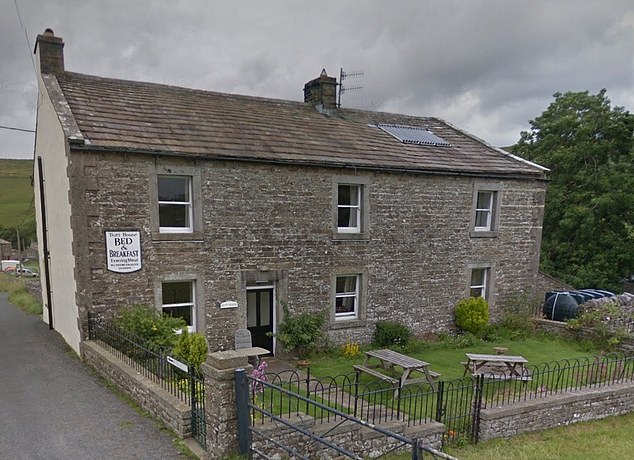
The Butt House Keld B&B in North Yorkshire was refused a payout under the Business Interruption scheme and could now be entitled to money
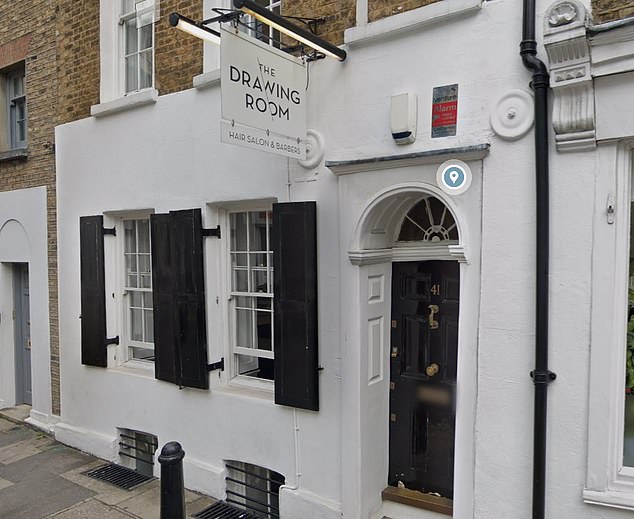
The Drawing Room in London’s Spitalfields is one of the thousands of businesses who could now be in line for cash
The Financial Conduct Authority previously said it was bringing the legal action following ‘widespread concern’ over ‘the lack of clarity and certainty’ for businesses seeking to cover substantial losses incurred by the pandemic and subsequent national lockdown.
In September, the High Court ruled on several ‘lead’ insurance policies issued by eight separate insurers largely in favour of the FCA, which welcomed the judgment as ‘a significant step in resolving the uncertainty being faced by policyholders’.
The regulator, however, argued the judgment ‘paved the way for many insurance policies to pay indemnities on Covid-19 business interruption claims’, but also ‘took something away with one hand after giving more substantially and in detail with the other’.
Six of the insurers – Arch, Argenta, Hiscox, MS Amlin, QBE and RSA – also appealed against aspects of the High Court’s ruling, as did the Hiscox Action Group, which represents around 400 businesses insured by Hiscox.
In November, the UK’s highest court heard ‘leapfrog’ appeals – which have bypassed the Court of Appeal – in a case which could have implications for hundreds of thousands of businesses affected by coronavirus.
Announcing the Supreme Court’s ruling today, Lord Hamblen said: ‘The appeals of the Financial Conduct Authority and the Hiscox Action Group are substantially allowed and the insurers’ appeals are dismis
sed.’
Summarising the Supreme Court’s decision in relation to ‘prevention of access clauses’ – which are triggered by ‘public authority intervention preventing access to, or use of, the business premises’ – Lord Hamblen said the High Court’s interpretation was ‘too narrow’.
The judge said: ‘An instruction given by a public authority may amount to a ‘restriction imposed’ if it carries the imminent threat of legal compulsion or is in mandatory and clear terms and indicates that compliance is required without recourse to legal powers.’
In a written ruling, Lord Hamblen and Lord Leggatt – with whom Supreme Court president Lord Reed agreed – concluded: ‘Although we have accepted some of the insurers’ arguments on their appeals, in no case has that affected the outcome of the appeal. It follows that the insurers’ appeals are dismissed.’
In a separate concurring judgment, Lord Briggs – with whom Lord Hodge agreed – said: ‘On the insurers’ case, the cover apparently provided for business interruption caused by the effects of a national pandemic type of notifiable disease was in reality illusory, just when it might have been supposed to have been most needed by policyholders.
‘That outcome seemed to me to be clearly contrary to the spirit and intent of the relevant provisions of the policies in issue.’
In a statement after the ruling, Sheldon Mills, executive director of consumers and competition at the FCA, welcomed the decision, saying the judgment ‘decisively removes many of the roadblocks to claims by policyholders’.
He added: ‘We will be working with insurers to ensure that they now move quickly to pay claims that the judgment says should be paid, making interim payments wherever possible.
‘Insurers should also communicate directly and quickly with policyholders who have made claims affected by the judgment to explain next steps.
‘As we have recognised from the start of this case, tens of thousands of small firms and potentially hundreds of thousands of jobs are relying on this.’
Richard Leedham, a partner at law firm Mishcon de Reya who represented the Hiscox Action Group (HAG), said: ‘This is a landmark victory for a small group of businesses who took on a huge insurance player and have been fully vindicated.
‘What is important now is that Hiscox accepts the Supreme Court’s verdict and starts paying out to its policy holders, many of whom are in danger of going under.’
Mr Leedham – who acted for HAG, which represents around 400 businesses insured by Hiscox – added: ‘Today’s outcome is one of the most significant for business in modern times.
‘The result should leave Hiscox and the rest of the insurance industry in no doubt that they should immediately start doing the right thing and settle these claims.’
Recently appointed Business Secretary Kwasi Kwarteng said the Supreme Court’s decision ‘will be a lifeline for tens of thousands of hairdressers, bars, restaurants and other small businesses that did the right thing and closed their doors to protect the health of the nation’.
Flora Hamilton, the financial services director at the Confederation of British Industry, said: ‘At such an uncertain time, this court case provides much-needed clarity to companies across the UK, and relief for smaller firms struggling with cashflow.
‘This is significant news for insurers, and regulators will need to work closely with the industry as policies, products and processes are updated to reflect this ruling.’
Shares in Hiscox tumbled after the ruling, dropping 6.3% between 9.45am and 10.20am.
However once the markets had time to digest the results, shares quickly rebounded, and were trading up 0.9% at around 11.10am.
Among the other insurance companies on the FTSE 100, Aviva gained 0.2%, Admiral Group had already been in the red, trading down 1.6% after the verdict,
Phoenix Group’s shares had dropped 1.5%, Prudential was down by 0.5%, while RSA Insurance dropped 0.1%.
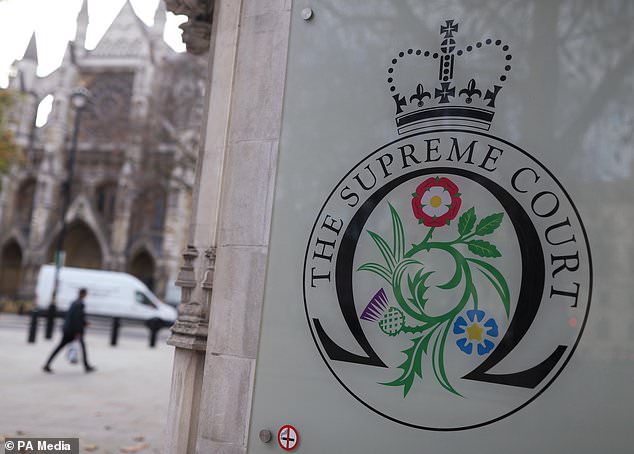
Britain’s highest court has ‘substantially allowed’ an appeal by the Financial Conduct Authority over the wording of business interruption insurance policies

